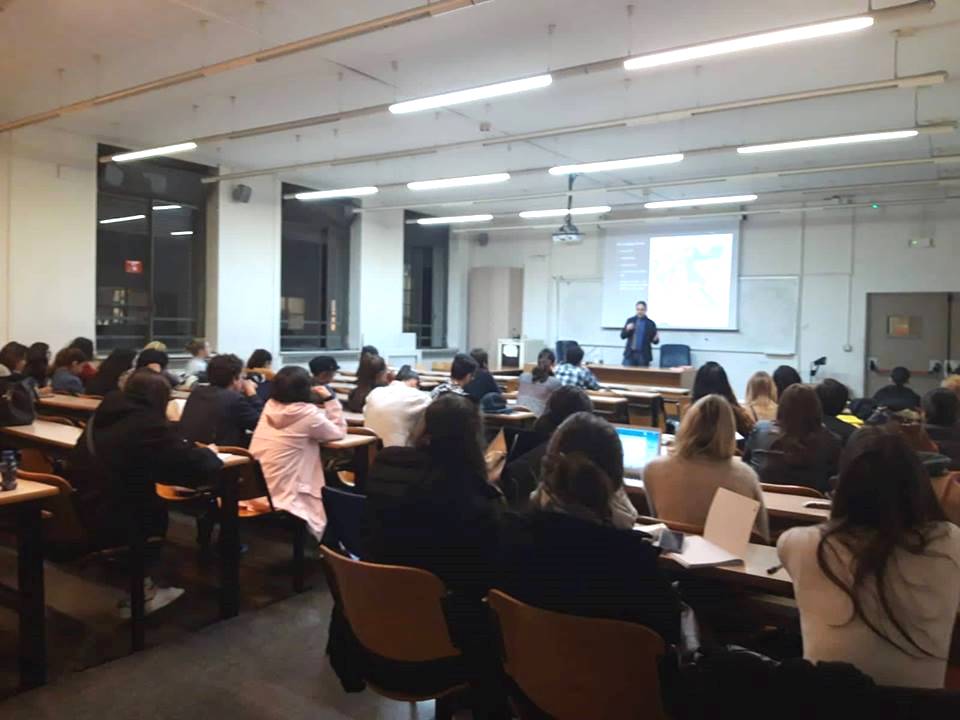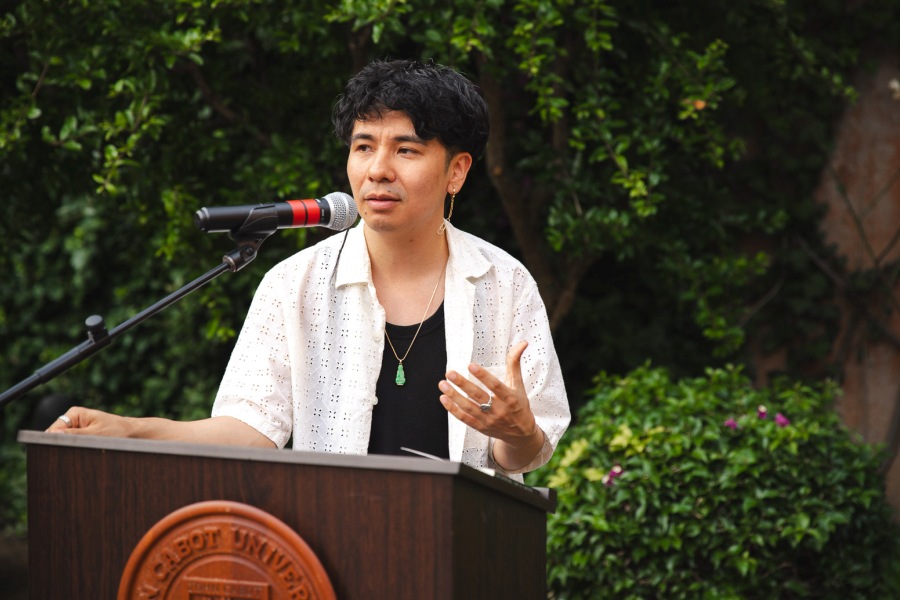Professor Fabrizio Conti Gives Guest Lecture at University of Rome “La Sapienza”
History and Humanities Professor Fabrizio Conti was invited to give a lecture to the international students of the Master’s in Fashion Through History at La Sapienza University in Rome on November, 22, 2018. The lecture, entitled “Clothing and Social Meaning: the Monk, the Knight, and the Witch,” was organized by the Department of History, Cultures and Religions.

Professor Conti during his lecture at “La Sapienza”
Prof. Conti illustrated the social meaning of clothing in medieval times through three specific cases. The color of the monk’s tunic, be it the black of the Benedictine, the white of the Carthusian or the Camaldolese, or the brownish-grey of the Franciscan friar, was designed to reflect the idea of penitence, spiritual light, and poverty, respectively. Knights, especially those belonging to the religious-military orders established after the First Crusade, of which the Knights Templar are an example, wear specific apparel showing their affiliation and military/religious goal. Witches were often depicted wearing the clothes of a housewife, or more often naked. The role of nudity was discussed, and raised questions from the students, especially concerning the different roles attributed to female nudity, which in the case of the witch represents lascivious and devilish behavior. Male nudity, on the other hand, can be associated with examples of heroism, as in the case of St. Francis depicted by Giotto in the Basilica of St. Francis in Assisi stripping himself of the clothes he wears, and giving them to his father. Prof. Conti concluded the lecture by explaining that from the social point of view, one is never naked: both clothing and nakedness hold specific meanings that are each determined both historically and culturally.
Fabrizio Conti received a dual Ph.D. in History and Medieval Studies from the Central European University, Budapest (Hungary). He is a graduate in the Humanities from the University of Rome “La Sapienza”, and has earned certificates from the Pontifical Institute for Christian Archaeology in Rome and the School of the Vatican Secret Archive.
His teaching and research interests span the Late Antique, Medieval, and Renaissance periods, with an interdisciplinary approach to intellectual, social, and religious developments. Prof. Conti is particularly interested in cultural fractures and changes within long-term historical structures and patterns: apparently distant domains at the focus of his attention such as the history of witchcraft and the impact of Christianization on the Roman civilization offer marvelous opportunities to discover such historical discontinuities and continuities. Prof. Conti taught ‘History of Medieval Christianity’, and ‘Magic and Witchcraft in Early Modern Europe’ in the Department of History at the Ohio State University, Columbus (OH) in 2015, and he has lectured in a number of other universities in Europe, the US, and the Middle East. He has worked in the catacombs of Rome as a docent and in the Vatican Secret Archive as an archivist.
Prof. Conti is currently involved in historical TV documentary series – ranging from the ancient civilizations and the strength of the Roman legions to the mysteries of the Knights Templar – both as a guest and script-writer. His book entitled Witchcraft, Superstition, and Observant Franciscan Preachers: Pastoral Approach and Intellectual Debate in Renaissance Milan was published by Brepols in 2015.





